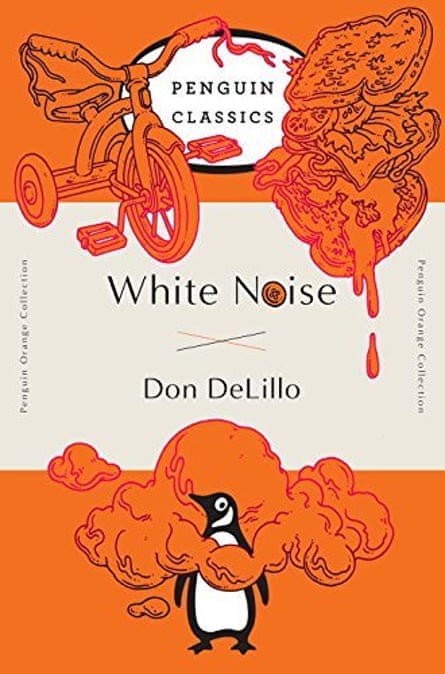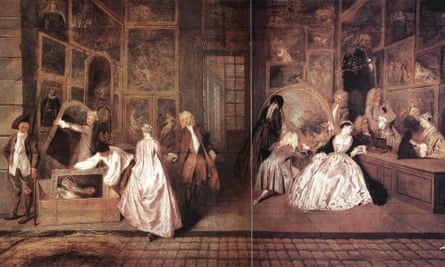Film
George A Romero’s 1968 horror film Night of the Living Dead is one of the most inspired critiques of consumerism in movie history. It is about a zombie uprising caused by a virus from outer space, causing dead people to rise from the grave, driven by a hunger for living human flesh. The film satirises 1960s America’s consumerism: people existing in a catatonic state of hunger and thirst and hostility; a metaphor made explicit in the later Dawn of the Dead (1978), set in a shopping mall. Now, in the era of social media, it’s even more relevant. All of us scrolling endlessly through our phones, looking dully through material covertly curated by commercial algorithms. People do it on public transport and even walking on the streets … like zombies. Peter Bradshaw
Game
Most games are materialistic: they tend to revolve around the accumulation of resources, be that money or experience points or incrementally better weapons and armour. But there is one game that truly communicates the pleasure of shopping, rather than the grind of it: Animal Crossing: New Horizons. Every day when you walk into Animal Crossing’s local store Nook’s Cranny, there is a different little selection of beautifully modelled furniture; when Sahara the carpet-selling camel arrives, it feels like an event. It is satisfying to browse the ever-changing wares and choose what to spend your hard-earned bells on, then take it home and put it on display. There is no utility to Animal Crossing’s decorative homewares, but that’s kind of the point: you’re buying them because they look cute, not because they will give you some advantage. Keza MacDonald
Music

The planet is dying, purse strings are tightening and, for the umpteenth year, everyone in the family has agreed that there is nothing anybody truly needs for Christmas. And yet we all fill up our online baskets as usual, convinced we’ve found “just a few” essential bargains. Capturing the vicious cycle of this 20%-off feeding frenzy, Leeds newcomer Hang Linton shares Sale, a cautionary tale over a shoulder-bouncing pop-funk beat: “Discounts on discounts / But don’t discount the fact / We bought it all for cheap / with the sweat off someone’s back”. Will we be more prudent next year? Hopefully. But until then, this danceable number cuts to the cold heart of consumerism. Jenessa Williams
Book

The great Don DeLillo’s visionary 1985 novel, White Noise, – adapted this winter into a film by Noah Baumbach – tells us of the holy trinity of shopping: “Mastercard, Visa, American Express”. Brand names are repeated like mantras. Children whisper “Toyota Celica” in their sleep. Grown men stand rapt and awed by supermarket displays: “There were six kinds of apples, there were exotic melons in several pastels. Everything seemed to be in season, sprayed, burnished, bright.” There are great abundant lists of everything. There is always more merchandise and always the possibility of purchasing more. But there is never a hope of escaping the terror of mortality. No matter how much shopping DeLillo’s characters do to distract themselves, they know they are always moving deathward. It is both the bleakest and the funniest investigation of consumerism that money can buy. Sam Jordison
Art

As you struggle through crowded shops counting the Christmas pennies, picture this: L’Enseigne de Gersaint, a dream of shopping as elegant, luxurious delight, painted in about 1720 by Jean-Antoine Watteau, one of the most seductive artists who ever lived. Watteau made L’Enseigne as a shop sign for a Paris art dealer, and surely it must have stopped shoppers in their tracks. As a celebration of art as commerce, it anticipates Warhol by 240 years. Watteau outdoes every perfume ad in the way he makes shopping look sexy. Women’s silk dresses shimmer as they exercise their taste in choosing paintings for the mansion, which shopworkers pack. Watteau delights in the comedy and sensuality of life, but he died in 1721 and this tender advert is his last breath. Jonathan Jones

